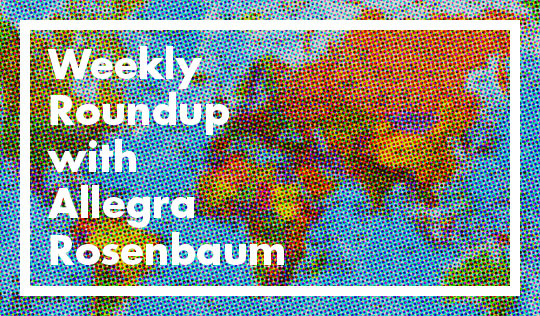Hello there, Asymptote readers! The weekend is upon us with its festivities and time to read all the things we meant to read during the week. Our Weekly News Round Up is a great way to catch up on what you missed: a starting point, if you will.
August was Women in Translation Month. It was a time to honor those who face different forms of sexism and hardship around the world simply for their sex. These women, despite these hardships, still go and do what speaks to them. In this case, it’s translation. Read this list of women translators from India, for example.
Ah India, a place where so many languages are spoken. And who gets to decide what is truly from or for a specific language? LitHub writer Gabrielle Bellot discusses this matter in her essay about who decides what is English and what is not. In it, she discusses Singlish, a Singaporean colloquial English, and compares it to her own Dominican roots.
And when it comes to putting labels on language, art, and writing, the United States will always come out on top. Alejandro Zambra discusses this matter in an interview about his new book (Is it fiction, poetry, who knows? It’s certainly good.), Multiple Choice. The book was just released in July, and covers the hearty subject of education.
Speaking of education, translators and writers are very excited about the Hugo Award for Best Novelette going to a Chinese author Hao Jingfang last week. They argue the best way to get Chinese literature out into the global mainstream is to translate it.
Publishers Weekly released their list of exciting indie books coming to stores and shelves this autumn. Many of them are books in translation, from Elena Ferrante to Bae Suah to László Krasznahorkai. Here’s to emptying our pockets for good reads. And if you need some more suggestions, why not get them from the writers themselves? For example, Dmitry Bykov listed his favorite 100 works of world literature.
I leave you, dear readers, with this great essay from The Paris Review about the history of the French word flâneur. What does it really mean, and why is Hermès using it in its luxury fashion advertisements? The world may never know!

